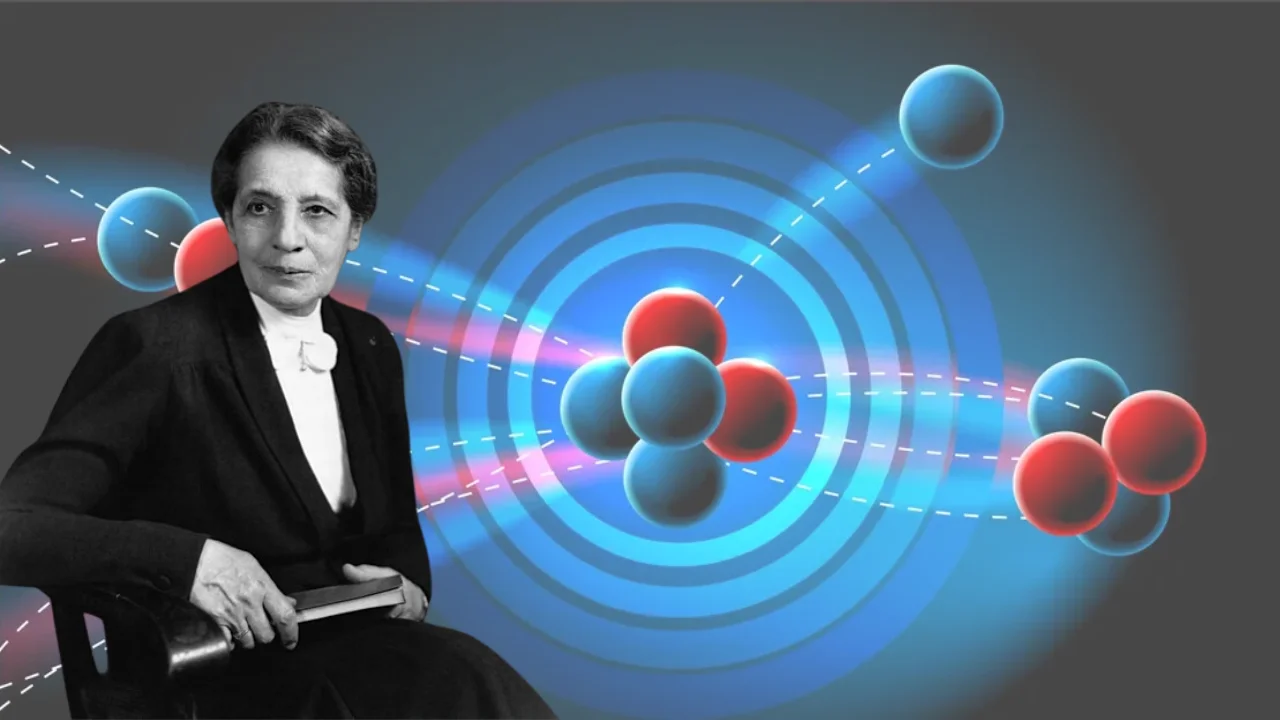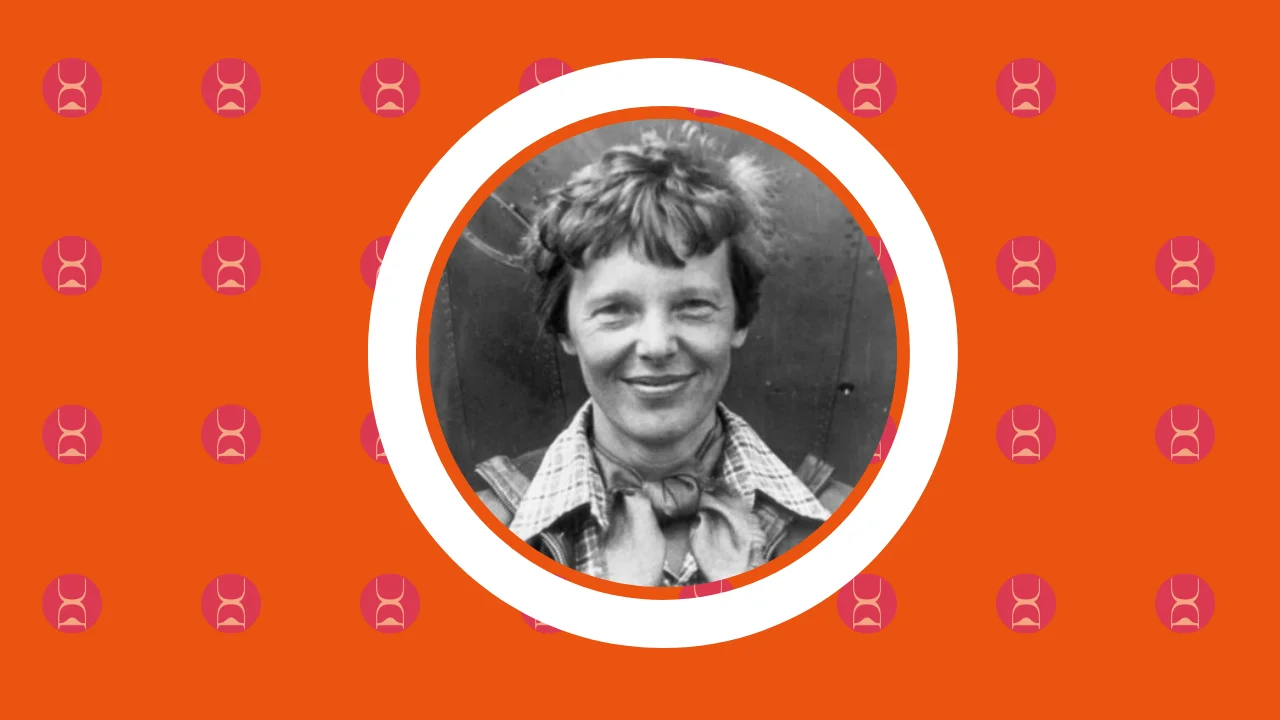Lise Meitner ’s Journey on Redefining Perseverance & Collaboration
21 Mar 2025

In the records of scientific history, few figures embody resilience, perseverance, and collaborative genius as profoundly as Lise Meitner.
As one of the pioneering women in physics, Meitner overcame gender bias, political adversity, and professional challenges to make groundbreaking contributions to nuclear physics.
Despite being sidelined in one of the most significant scientific discoveries of the 20th century, her unwavering dedication to science left an indelible mark.

This article explores Meitner's journey, highlighting her early curiosity, scientific breakthroughs, struggles against discrimination, and enduring legacy.
Devoted Beginning: A Curious Mind in a Changing World
Born on November 7, 1878, in Vienna, Austria, Lise Meitner grew up in an era where women faced significant barriers in education and professional pursuits. However, her thirst for knowledge and scientific inquiry was insatiable.
She was the third of eight children in a well-educated Jewish family that encouraged intellectual exploration. Her father, a lawyer, instilled in her the importance of education, allowing Meitner to break barriers despite societal constraints.
source: wikipedia[/caption]
Education for women was not a given in Austria at the time, but Meitner's determination led her to become one of the first women admitted to the University of Vienna. Under the mentorship of Ludwig Boltzmann, a revered physicist, she developed a profound understanding of physics, particularly in radioactivity, which would later shape her career.
In 1906, she earned her doctorate in physics, becoming only the second woman to achieve this distinction at the university. With an unyielding spirit, she ventured into an academic world dominated by men, setting the stage for her trailblazing journey in science.
Recalling her parents, Lise remembered: “…the unusual goodness of my parents, and the extraordinarily stimulating intellectual atmosphere in which my brothers and sisters and I grew up.”
Laying Remarkable Footprints in Science
After completing her doctorate, Meitner moved to Berlin in 1907 to work with Max Planck, a rarity for women at the time. There, she met Otto Hahn, a chemist with whom she would form one of the most fruitful collaborations in scientific history. Their partnership led to groundbreaking research in radioactivity and nuclear physics.
Together, they investigated radioactive decay, eventually co-discovering the element protactinium in 1918. However, it was their research into nuclear fission that would have the most profound impact.

source: wikipedia[/caption]
As Hitler's regime rose to power, Meitner, of Jewish heritage, faced increasing persecution. Despite her loyalty to science and her German colleagues, she was forced to flee Nazi Germany in 1938, seeking refuge in Sweden.
Lesson: Perseverance in the face of adversity-Meitner’s journey was riddled with obstacles, from gender discrimination to the upheaval of her career by Nazi Germany, but she never let these challenges define her limits.
“It is based on the stupid newspaper story that I left Germany with the bomb in my purse, that Himmler’s people came to Dahlem [the Kaiser Wilhelm Institute] to inform me of my dismissal and more along the same lines.” - Lise Meitner.
Overcoming Stumbling Stones in Career Journey
Meitner's exile posed immense challenges, both personally and professionally. Although she had played a crucial role in understanding nuclear fission, she was excluded from the Nobel Prize in Chemistry awarded to Otto Hahn in 1944 for the discovery.
Many historians and scientists argue that her exclusion was not just an oversight but an outright injustice, as her theoretical interpretations were fundamental to explaining the process of nuclear fission.
Despite this significant setback, Meitner remained dedicated to science, focusing her efforts on promoting ethical scientific practices. She opposed the use of nuclear energy for destructive purposes, making it clear that she wanted no association with the development of nuclear weapons, even though her research had contributed to the understanding of atomic reactions.
Lesson: Collaboration and teamwork-Even under extraordinary circumstances, Meitner demonstrated the power of collaboration, working across borders to make historic discoveries.
Building Resilient Spirit in the Face of Ignorance
Even as she faced professional exclusion and the personal pain of displacement, Meitner never allowed bitterness to overshadow her passion for physics.
She continued her research in Sweden and later in the Netherlands, mentoring future generations of physicists. Her humility, perseverance, and commitment to scientific integrity earned her deep respect among peers.
It wasn't until later in life that she began receiving long-overdue recognition. In 1966, she, along with Otto Hahn and Fritz Strassmann, was awarded the Enrico Fermi Award for their contributions to nuclear fission. This recognition, although significant, could not fully compensate for the decades of sidelining she had endured. However, Meitner remained gracious, never expressing resentment toward Hahn or the scientific community that had overlooked her.
Lesson: Humility - Despite being denied recognition at times, Meitner remained humble and committed to her work, never letting the lack of accolades diminish her passion for science.
Legacy: A Life Devoted to Science
Lise Meitner's legacy is one of resilience, intellectual brilliance, and an unshakable commitment to truth. She paved the way for women in STEM, showing that perseverance in the face of adversity can lead to groundbreaking achievements.
Her contributions to nuclear physics continue to influence modern science, and her name is immortalized in element 109, Meitnerium (Mt), a rare honor for a female scientist.
Beyond her scientific contributions, Meitner's story serves as an inspiration for women and underrepresented individuals striving to make their mark in male-dominated fields.
Her life's journey teaches us that true success is not just measured in accolades but in the impact one leaves behind. Through her unwavering dedication, she redefined perseverance and collaboration, proving that integrity in science transcends recognition.

source: wikipedia[/caption]
Conclusion
Lise Meitner's journey is a testament to the power of resilience, intellectual courage, and ethical responsibility in science. Her life reminds us that groundbreaking discoveries often emerge from collaboration, and perseverance can overcome even the most daunting barriers.
Though she was denied the Nobel Prize, history has rightfully recognized her as one of the most brilliant physicists of the 20th century. Her story continues to inspire generations of scientists and thinkers to push boundaries, embrace challenges, and pursue knowledge with unwavering determination.




